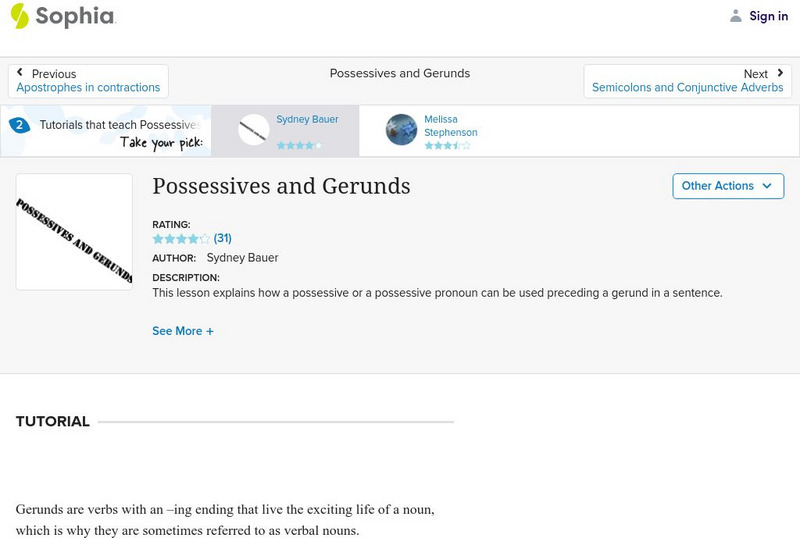Wonderscape
Using Contractions and Singular Possessive Pronouns
This video covers the use of contractions and singular possessive pronouns. It explains the concept of contractions, how to recognize them in reading, and how to use them in writing. It also covers singular possessive pronouns and...
The Learning Depot
Subject, Object, Possessive, and Reflexive Pronouns
In this lesson, you will learn about pronoun case. There are four common pronoun cases: subject, object, possessive, and reflexive. Examples are given. My apologies for the sound. Was having trouble with the mic. :-)
Englishing
Confusing English: Possessive ('S) - (Easy Explanation)
This video is about possessive's. There are several rules to turn common nouns into possessives. The most common one is just add 's to who possesses the object. Generally speaking a person possesses things not the other way round. There...
Extra English Practice
Their, there, they're and other common homophones
Vocabulary lesson comparing three sets of common homophones: there/their/they're, it's/its, and your/you're. Fill in the blank activities and a BINGO game for practice.
Grammaropolis
The Best Apostrophe Song You’ve Ever Heard
A music video starring Prosecutor Apostrophe. He's the best at contracting you for posession.
Cerebellum
French: Possessive Pronouns and the Weather
Days of the week, seasons, months and how to speak about the weather. This is part 2 in the series: 'French: Asking About The Weather'.
Curated Video
Forming Possessives: Singular and Plural Nouns
In this video, a teacher explains how to correctly form and use possessives in writing. The teacher provides examples and rules for both singular and plural nouns, and guides students through practice exercises. By following these rules,...
Cerebellum
English Punctuation: Hyphenated Number and Apostrophe and Ellipses
Imagine a world without punctuation - it would be chaos! Understand these powerful little signs and the rules for using them. Add some flair to your sentences with dramatic dashes, hyphens, and the ever-useful apostrophe. This is part 4...
Mazz Media
Possessive Nouns
This program introduces possessive nouns to young students. Learns will come to know that a possessive noun shows that a person, animal, place, thing or idea can possess something. "Possess" means to have or to own. Through real life...
Getty Images
Medium Close Up, Hand-held - A dog tries to pull a meaty bone out of a person's hand / USA
Medium Close Up, Hand-held - A dog tries to pull a meaty bone out of a person's hand / USA
Khan Academy
Khan Academy: Bonus: History of the Possessive Apostrophe
David, Paige, and Jake cover the fascinating history of the possessive apostrophe. Stay tuned for this bonus video!
Khan Academy
Khan Academy: Advanced (Plural) Possession
Paige and David talk about using apostrophes to show that something belongs to multiple people.
Khan Academy
Khan Academy: Possessive Pronouns
Possessive pronouns describe what things belong to which people, like 'her shoe' or 'the book is mine.' Possessive pronouns can be adjectives, like 'his bicycle,' or they can stand in for nouns, like 'the seats are theirs.' Neither of...
Khan Academy
Khan Academy: Introduction to the Possessive
Apostrophes can help show when something belongs to someone. Paige and David explain how!
Sophia Learning
Sophia: Possessives and Gerunds: Lesson 2
This audio lesson explains how a possessive or a possessive pronoun can be used preceding a gerund in a sentence. It is 2 of 2 in the series titled "Possessives and Gerunds."
Sophia Learning
Sophia: Apostrophes and Possession
This lesson explains the use of apostrophes to form possessives.






